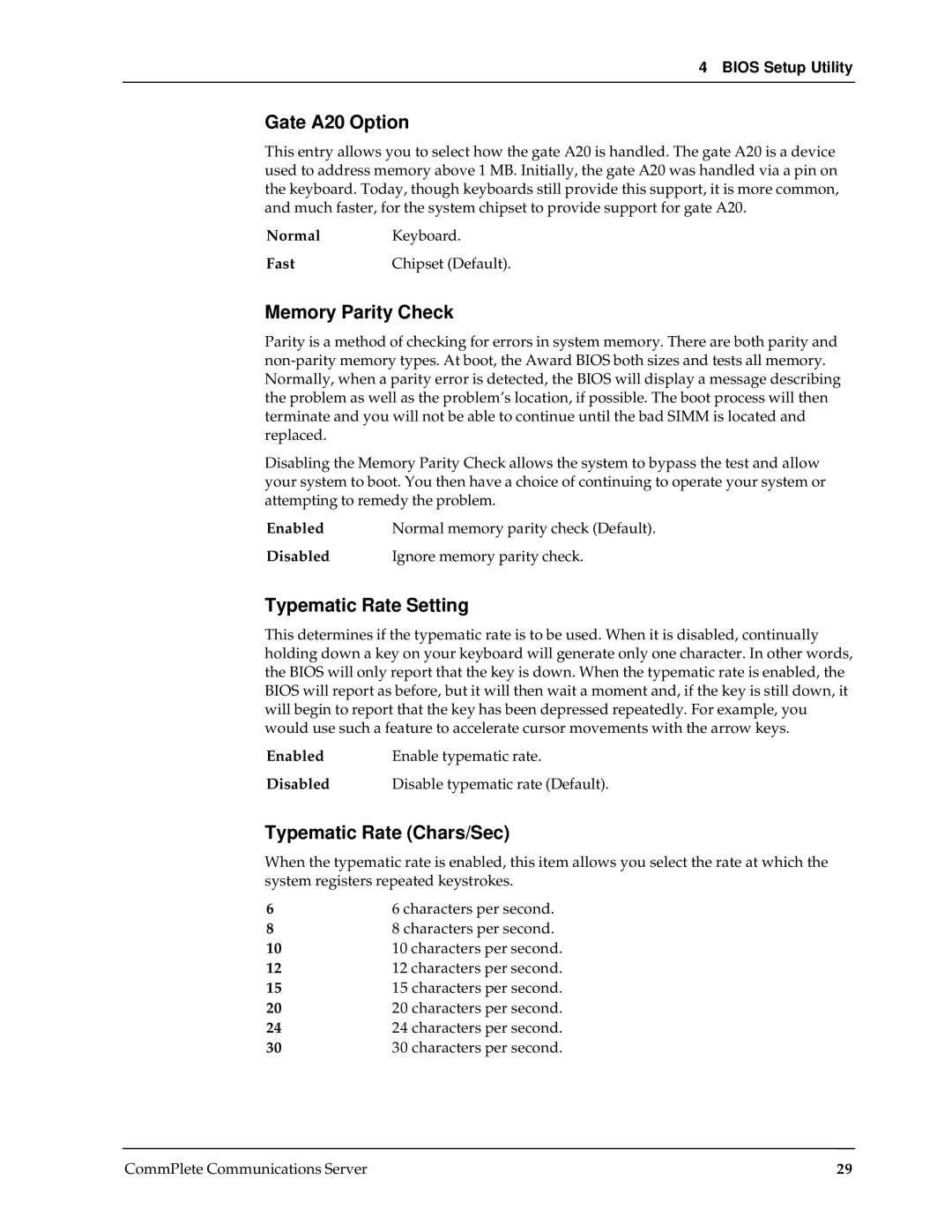
4 BIOS Setup Utility
Gate A20 Option
This entry allows you to select how the gate A20 is handled. The gate A20 is a device used to address memory above 1 MB. Initially, the gate A20 was handled via a pin on the keyboard. Today, though keyboards still provide this support, it is more common, and much faster, for the system chipset to provide support for gate A20.
Normal Keyboard.
Fast | Chipset (Default). |
Memory Parity Check
Parity is a method of checking for errors in system memory. There are both parity and
Disabling the Memory Parity Check allows the system to bypass the test and allow your system to boot. You then have a choice of continuing to operate your system or attempting to remedy the problem.
Enabled | Normal memory parity check (Default). |
Disabled | Ignore memory parity check. |
Typematic Rate Setting
This determines if the typematic rate is to be used. When it is disabled, continually holding down a key on your keyboard will generate only one character. In other words, the BIOS will only report that the key is down. When the typematic rate is enabled, the BIOS will report as before, but it will then wait a moment and, if the key is still down, it will begin to report that the key has been depressed repeatedly. For example, you would use such a feature to accelerate cursor movements with the arrow keys.
Enabled | Enable typematic rate. |
Disabled | Disable typematic rate (Default). |
Typematic Rate (Chars/Sec)
When the typematic rate is enabled, this item allows you select the rate at which the system registers repeated keystrokes.
6 | 6 characters per second. |
8 | 8 characters per second. |
10 | 10 characters per second. |
12 | 12 characters per second. |
15 | 15 characters per second. |
20 | 20 characters per second. |
24 | 24 characters per second. |
30 | 30 characters per second. |
CommPlete Communications Server | 29 |
